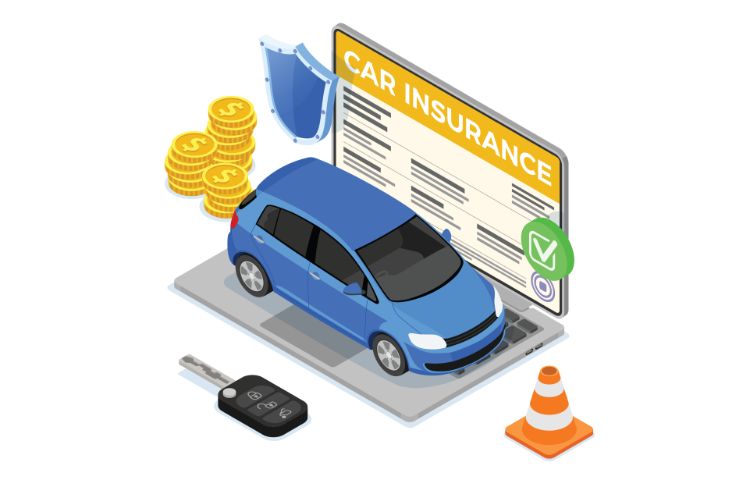
In today’s fast-paced world, owning a car is more than a convenience; it’s a necessity. With this necessity comes the responsibility of protecting your investment and yourself against unforeseen events. Private car insurance plays a pivotal role in providing this protection, offering a safety net that guards against financial losses due to accidents, theft, and other perils. This article delves into the various aspects of private car insurance, its importance, and the interplay with travel-related insurance coverage.
Understanding Private Car Insurance
Private car insurance is designed specifically for individuals who own and operate personal vehicles. Unlike commercial car insurance, which covers vehicles used for business purposes, private car insurance focuses on personal usage. This insurance typically includes several types of coverage:
Liability Coverage
Liability coverage is a fundamental component of private car insurance. It covers the costs if you are found legally responsible for causing injury or damage to another person or their property while driving your vehicle. This type of coverage is usually mandatory in most jurisdictions and is divided into bodily injury liability and property damage liability.
Collision Coverage
Collision coverage pays for damages to your vehicle resulting from a collision with another car or object. Whether it’s a fender bender or a major accident, this coverage helps repair or replace your car. It’s especially crucial for newer or high-value vehicles where repair costs can be substantial.
Comprehensive Coverage
Comprehensive coverage goes beyond collisions. It covers damage to your car from non-collision events such as theft, vandalism, natural disasters, and even animal encounters. This coverage ensures that you’re protected from a wide range of potential threats, making it an essential part of a robust private car insurance policy.
Personal Injury Protection (PIP)
Personal Injury Protection, or PIP, is an optional yet highly beneficial coverage. It covers medical expenses, lost wages, and other related costs if you or your passengers are injured in an accident, regardless of fault. PIP can be a lifesaver in states with no-fault insurance laws, where each driver’s insurance covers their own injuries.
The Synergy Between Car and Travel Insurance
While private car insurance covers you on the road, travel insurance offers broader protection during your journeys. Combining these two types of insurance can provide comprehensive coverage, ensuring peace of mind whether you’re driving locally or embarking on a road trip.
Cover Insurance Travel: Extending Protection
Cover insurance travel refers to integrating travel-related risks into your insurance policy. For instance, if you’re planning a long road trip, extending your private car insurance to include travel-specific coverage can protect you from a variety of risks that aren’t typically covered under standard car insurance policies. This might include coverage for rental cars, trip interruption, and roadside assistance.
Travel Insurance Plan: Beyond the Vehicle
A well-rounded travel insurance plan covers more than just your vehicle. It includes protection for trip cancellations, medical emergencies, lost luggage, and more. When combined with private car insurance, a travel insurance plan ensures that all aspects of your journey are covered, providing a safety net for both your car and your travel plans.
Selecting the Right Private Car Insurance
Choosing the right private car insurance involves understanding your needs, evaluating various coverage options, and considering additional factors that can influence your decision.
Assessing Your Coverage Needs
Your insurance needs depend on various factors such as the value of your car, your driving habits, and your financial situation. High-value or new cars typically require comprehensive and collision coverage, while older vehicles might suffice with liability coverage alone. Evaluate your personal circumstances to determine the level of protection you need.
Balancing Premiums and Deductibles
Premiums and deductibles are crucial elements of any insurance policy. The premium is the amount you pay for the insurance, while the deductible is what you pay out of pocket before the insurance kicks in. Higher deductibles usually mean lower premiums, but they also mean higher out-of-pocket costs in case of a claim. Finding the right balance is key to maintaining affordable yet effective coverage.
Understanding Policy Exclusions
Every insurance policy has exclusions—situations where coverage is not provided. Common exclusions in private car insurance include intentional damage, driving under the influence, and using the vehicle for commercial purposes. Familiarize yourself with these exclusions to avoid unexpected surprises during a claim.
Exploring Discounts and Benefits
Many insurance providers offer discounts for various reasons, such as safe driving records, bundling multiple policies, or installing safety features in your vehicle. These discounts can significantly reduce your premiums, making your private car insurance more affordable. Always inquire about available discounts when shopping for insurance.
The Future of Private Car Insurance
The insurance industry is continuously evolving, with technological advancements paving the way for more personalized and efficient coverage options.
Telematics and Usage-Based Insurance
Telematics involves using GPS and other technologies to monitor driving behavior. This data can be used to offer usage-based insurance (UBI), where premiums are based on actual driving habits. Safe drivers benefit from lower premiums, while high-risk behaviors lead to higher costs. This approach incentivizes safer driving and offers more tailored coverage.
Autonomous Vehicles
The advent of autonomous vehicles poses new challenges and opportunities for the insurance industry. While these vehicles are expected to reduce accidents, they also introduce new types of risks and liabilities. Insurers will need to adapt their policies and pricing models to account for the unique characteristics of autonomous driving.
Artificial Intelligence and Claims Processing
Artificial intelligence (AI) is revolutionizing the claims process, enabling faster and more accurate assessments. AI-driven algorithms can analyze data from accidents, assess damage, and expedite claims settlements, enhancing customer satisfaction and reducing operational costs for insurers.
Conclusion
In conclusion, private car insurance is an indispensable part of vehicle ownership, providing critical protection against a myriad of risks. Understanding the different types of coverage, evaluating your personal needs, and staying informed about industry trends can help you select the best policy for your circumstances. Additionally, integrating a travel insurance plan with your car insurance can offer comprehensive protection for all your journeys. As the insurance landscape continues to evolve, staying informed and proactive will ensure that you remain adequately protected on the road and beyond.

